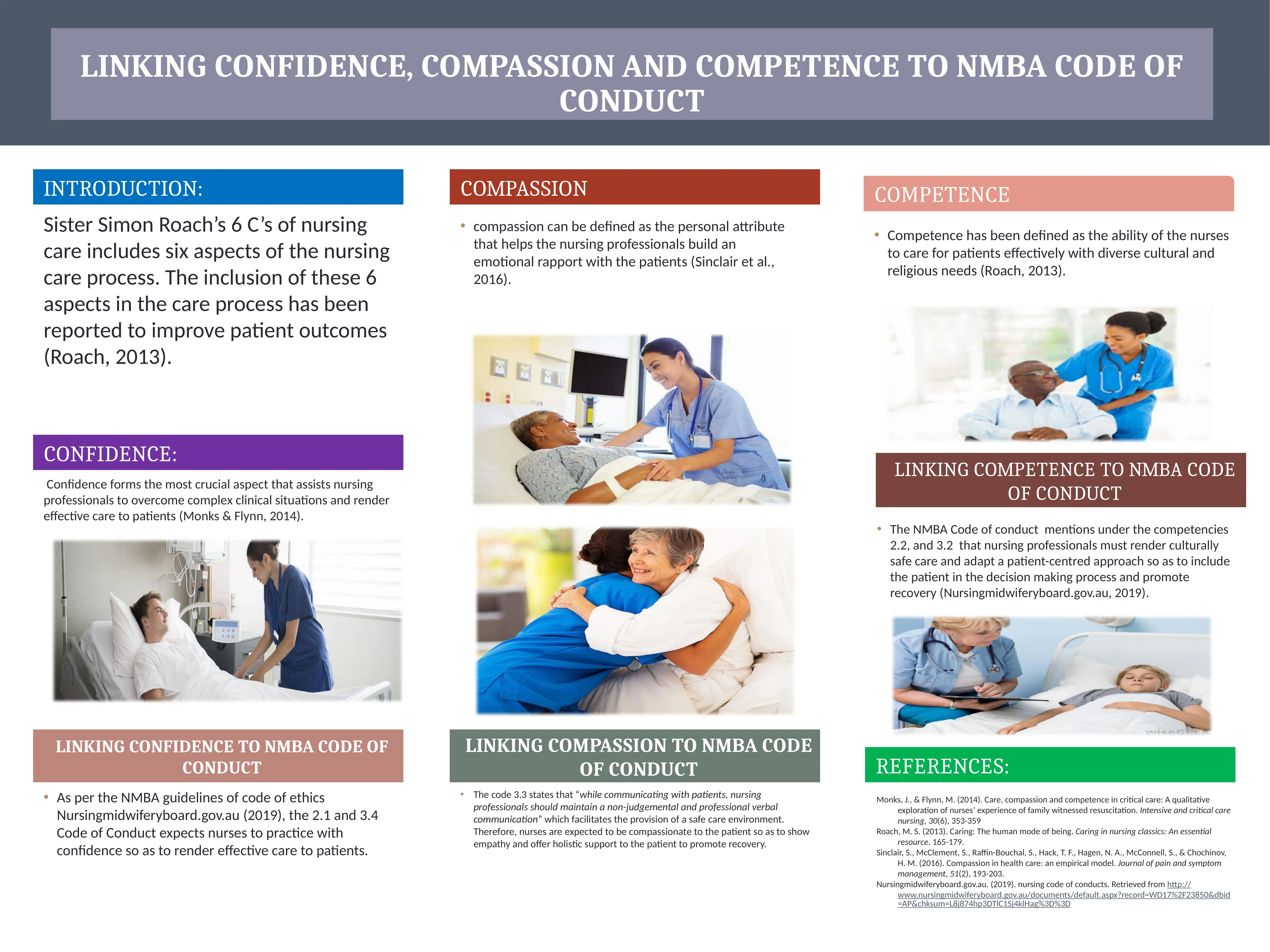NMBA Code of Conduct: Compassion, Confidence, and Competence Explained
VerifiedAdded on 2023/01/18
|1
|473
|65
Report
AI Summary
This report delves into the NMBA Code of Conduct, examining the crucial elements of compassion, confidence, and competence in nursing practice. It highlights the importance of compassion in building emotional rapport with patients, as well as the significance of confidence in handling complex clinical situations. The report also emphasizes competence, demonstrating the ability of nurses to provide culturally safe and patient-centered care, as outlined in the NMBA guidelines. References to key codes such as 2.1, 3.4, 2.2, and 3.2 are made to illustrate how nurses are expected to integrate these attributes to promote patient recovery and maintain a professional environment. The report also provides references to key research papers and guidelines to support the key arguments.







![[object Object]](/_next/static/media/star-bottom.7253800d.svg)